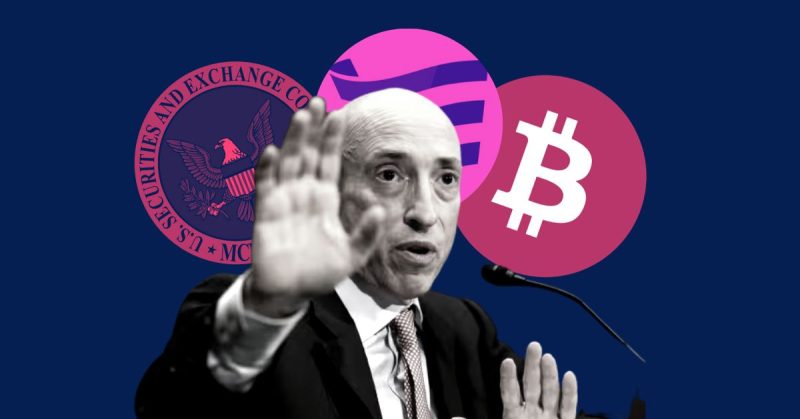Democratic Senators Jack Reed and Laphonza Butler have expressed strong opposition to the approval of additional cryptocurrency exchange-traded funds (ETFs) by the Securities and Exchange Commission (SEC). In a letter addressed to SEC Chair Gary Gensler on March 11, they highlighted concerns over the exposure of investors to markets vulnerable to fraud and manipulation. Their cautionary stance comes amidst the SEC’s consideration of eight proposed spot Ether ETF applications, and the potential for future approvals of ETFs tied to other altcoins.
Concerns Over Retail Investor Risks
The senators argued that retail investors could face significant risks from ETFs linked to thinly traded cryptocurrencies or those susceptible to pump-and-dump schemes. They urged the SEC not to set a precedent with the recent approval of spot Bitcoin ETFs for the approval of additional crypto ETFs. Despite acknowledging the established nature of the Bitcoin market, they emphasized its susceptibility to fraud and manipulation, suggesting that other cryptocurrency markets might be even more at risk.
Calls for Increased Regulatory Scrutiny
Reed and Butler recommended that the SEC implement specific regulatory measures for Bitcoin ETF products, including enhanced scrutiny of brokers and advisors associated with these ETFs. Their concerns reflect a broader apprehension about the potential for investor harm in less regulated and more volatile cryptocurrency markets.
Political Pressure and Industry Response
The senators’ letter indicates a growing political pressure on the SEC, potentially affecting the approval chances of Ether ETFs and others. Alexander Grieve, from the crypto venture capital firm Paradigm, remarked that the success of spot Bitcoin ETFs has stirred discontent among some lawmakers. The crypto industry views the senators’ stance as a sign of increasing political resistance to cryptocurrency ETFs, with analysts adjusting their expectations for future approvals accordingly.
Legislative Efforts Against Crypto
Both Butler and Reed have previously supported legislation aimed at regulating the cryptocurrency sector more strictly in the U.S. Their involvement in initiatives to enhance Know Your Customer (KYC) and Anti-Money Laundering (AML) measures for decentralized finance (DeFi) underscores their cautious approach to the integration of cryptocurrencies into the broader financial system.
The dialogue surrounding crypto ETFs reflects the ongoing debate over the balance between innovation and investor protection in the rapidly evolving cryptocurrency space. As the SEC navigates these waters, the input from lawmakers underscores the complexities of regulating an asset class that defies traditional financial paradigms.
